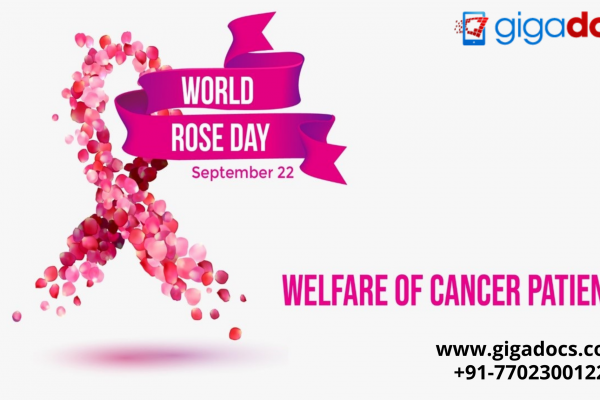We have many food items on our dining table, but have you ever thought about which are organic and healthy? Of late, there has been a trend about going organic and its underlying benefits. Ever thought about what organic farming is? Put together, organic farming is cultivating land without synthetic fertilizers, pesticides, growth promoters, or adding additives to livestock feed. Organic agriculture uses mechanical cultivation, crop rotation, compost, biological pest control, and other methods based on natural processes for soil productivity and control of pests.
Organic Farming and Organic Food do wonders for your health; organic farming is beneficial to the soil, too, for it maximizes soil fertility, preserves soil fertility, improves animal welfare, and effectively uses water systems. Organic farming also aims to minimize energy use and prevent pollution while improving the indirect environmental effects of farming.
This National Farmers Day, let’s examine organic and sustainable farming, its effects on health, and how organic farming is good for both your health and the health of our planet earth. In this blog, we will discuss how to recognize organic food, the differences between organic and non-organic food, the health benefits of organic food, what makes organic food unique, how organic food prevents the spread of many diseases, and how organic food is good for the health of our mother earth.
Identifying Organic Food
The market has a wide variety of products that appears to be very fresh, but this does not imply that it is organic. Organic foods are usually displayed and sold separately. These have certified stickers attached to them or printed on them. Their flavor also differs slightly from that of typical food. Organic food has a more robust aroma than regular food. Let’s understand how we can point out organic food-
Organic versus Non-Organic Food
| Organic food is more nutritional in value | Food that is not organic has fewer nutrients. It is a result of nutrient loss during the processing of non-organic food. |
| Organic foods are fertilized using natural fertilizers, like cow manure and Kitchen waste compost. | Chemicals are used to fertilize non-organic food, hence a difference in nutritional values. |
| All artificial hormones are absent from organic food. | Food has many artificial hormones to make them resistant to disease and other pests to ensure the yield. |
| Does not harm nature, in fact, it assists in the natural food cycle process. | Due to its artificial resistance towards other organisms, it is not nature friendly. It is also known to hamper the life cycle of Bee’s which in turn helps maintain the life cycle of nature. |
Health Benefits from Organic Food
Growing evidence explains that food grown organically is rich in nutrients, such as Vitamin C, iron, magnesium, and phosphorus, with less exposure to nitrates and pesticide residues in organically grown fruits, vegetables, and grains. Organic production not only helps reduce public health risks, but its reduced pesticide exposure and higher nutritional value promote better health.
What Makes Organic Food Unique?
Food that is organic costs a lot more than regular food. The underlying question is, what do you get different or extra when you choose organic food over other food? Do organic foods have any health benefits? Let’s talk about these points and discover the answers.
- Organic Cow Milk
The milk from a cow raised organically is considered to be organic cow milk. This kind of cow is fed only organic food, and no synthetic or artificial growth hormones is ever given to it. When necessary, an organically raised cow is given medications, but no antibiotics nor hormones are used to increase milk production. Although conventional and organic milk has the same calories, protein, and calcium content, organic milk contains significant amounts of conjugated linoleic acid and omega-3 fatty acids, which are good for you.
- Organic Eggs
Eggs produced by chickens raised in a healthy environment are considered organic eggs. Organic chicken farms practice healthy habits and feed their flock organic food, like the chickens are not caged in organic egg production. Since organic eggs are raised in a happy environment with space to move around, they are thought to be healthier than conventional eggs.
Organic Food Protects the Elderly from many Diseases.
The main benefit of organic foods is that they have no negative health effects. No chemicals, pesticides, medications, or preservatives are used in producing organic food. As a result, it is regarded as the best option for seniors. Let’s understand why organic food is healthy for seniors-
- It protects the elderly from several diseases.
- Compared to foods laced with chemicals, organic food is more nutrient-dense. They have a higher mineral and vitamin content.
- The nutrients in organic food can help prevent serious illnesses like cancer, diabetes, migraines, high blood pressure, and heart disease.
- Since harmful substances like chemicals, pesticides, drugs, and preservatives are not used in producing organic foods, they typically do not contain toxic substances.
- Consuming organic food also helps to strengthen the body’s immune system. It has better flavor and is thought to promote glowing skin.
Why is organic food beneficial for the Elders?
- Antibiotic resistance: Organic food’s ability to resist antibiotics is one of its main advantages for senior citizens. Contrarily, chemicals are used to produce non-organic food. People who eat non-organic food indirectly consume harmful chemicals such as antibiotics and hormones.
- Strengthens Immune System: Organic food also boosts older people’s immunity. The elderly can consume healthier vitamins and minerals thanks to organic food. Contrarily, conventional food is raised with the sole purpose of increasing production. Food that is not organic contains harmful chemicals.
- Reduced use of pesticides: Another advantage of non-organic food is that it is free of pesticides. Organic food is essential for elderly people with chronic illnesses. Non-organic food ingests chemical pesticides, which can cause several serious illnesses in the elderly. Although pesticides effectively prevent pests from damaging crops, they can harm human health. Therefore, seniors should prefer eating organic food.
- Organic products are poison-free– Since harmful chemicals are not used in producing organic products, they are poison-free and safe for senior citizens. Because organic farming has reduced factors like biomagnification, such foods are thought to have a low risk of contamination by harmful substances.
- Better Taste: Food that has been organically ripened has a better flavor than regular food, which helps to ensure the elderly’s better health. It’s because organic food is grown more slowly and naturally on farms. Reduced risk of foodborne illness; because it uses no chemicals, it creates fewer risks of foodborne illness. As a result, elderly people who consume organic food generally live longer and in better health.
- Enhances Cardiovascular Health: Food produced organically is good for the heart. Organic food uses less oil and fat, protecting the hearts of the elderly. Iron, magnesium, phosphorus, and vitamin C are all abundant in organic food. Older adults with heart conditions are strongly advised to eat more organic food.
- Antioxidant content: According to studies, organic food significantly improves a person’s nutritional status as they grow. Organic food shields the elderly from diseases like cancer, malnutrition, and vision issues thanks to its antioxidant content.
- Better overall health: Organic food has so many advantages that it enhances the well-being of the elderly. Regularly eating organic food guarantees better health and nutrition, which promotes better living.
Environmental Benefits of Organic Farming
Organic farming offers a practical solution to protect the ecology and environment when ecological concerns are growing. Crop rotation is a fundamental aspect of organic farming.
Organic cultivation also reduces the emission of dangerous gases that contribute to global warmings, like methane, nitrous oxide, and carbon dioxide. The food and Agriculture association (FAO) concurs that using organic farming practices could significantly halt environmental deterioration and global warming. At the 2007 International Conference, FOA concluded that organic farming has the potential to protect biodiversity, ensure food security, and slow down climate change.
Organic Food and your Health
With so many noted benefits of Organic Farming, why not add organic products to our diet and meal plans? Gigadocs wishes you and your family a very happy National Farmers Day; for consultations on health habits during winter and winter diseases consultation download the Gigadocs app from-
- IOS App – apple.co/2W2iG4V
- Android App – bit.ly/33AQoRC
To know more e-mail, at info@gigadocs.com




